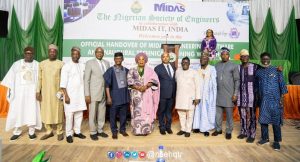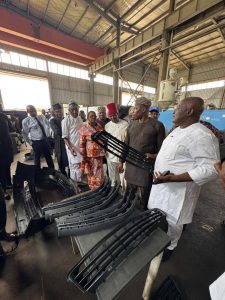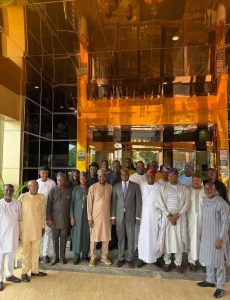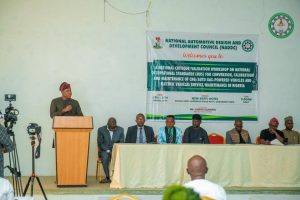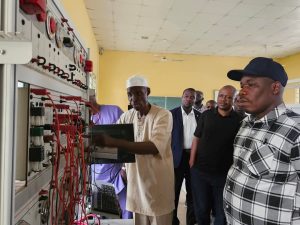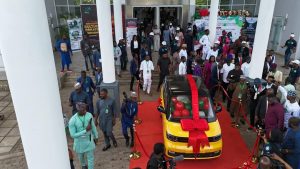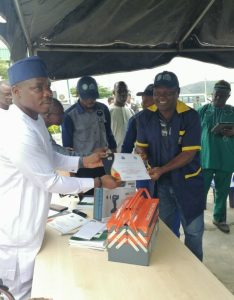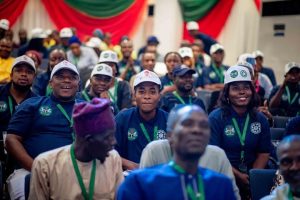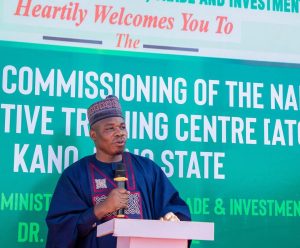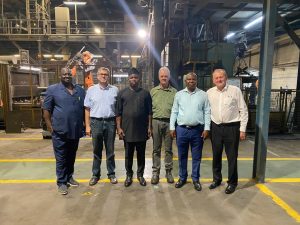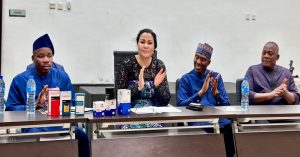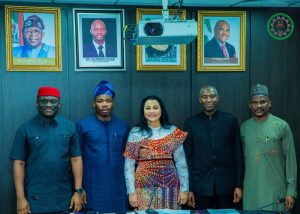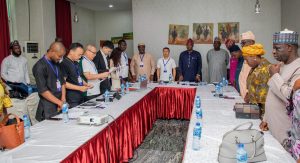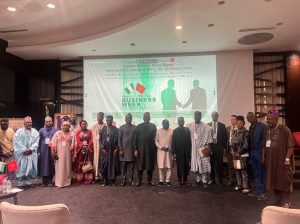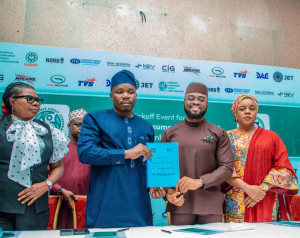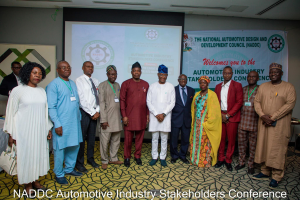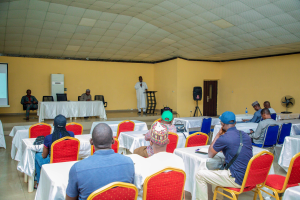On 29th August 2025, the Federal Government flagged off the construction of the National Automotive Design and Development Council (NADDC) Automotive Training Centre at the University of Education and Entrepreneurship, Akamkpa, Cross River State.
Speaking at the Groundbreaking Ceremony, the Honourable Minister of State for Industry, Federal Ministry of Industry, Trade and Investment, Senator John Owan Enoh-JOE, described the project as “a historic moment and a vital step in building skills, innovation, and economic empowerment for Cross River State and Nigeria.”
The Minister explained that the Centre is envisioned as a hub of excellence to drive human capacity development, skills acquisition, and standardized automotive services. He noted that it will help address unsafe vehicle repairs, reduce road accidents, and prepare Nigeria’s workforce for electric, CNG, and next-generation vehicles while aligning with President Bola Ahmed Tinubu’s Renewed Hope Agenda on job creation, poverty eradication, and the digital economy.
The Chairman, NADDC Governing Board, His Eminence Chief Emma Eneukwu, reaffirmed the Board’s commitment to completing and equipping the facility to global standards under a sustainable Public-Private Partnership (PPP) model. He called on government, industry, academia, and the private sector to support the initiative.
In his remarks, the Director-General of NADDC, Mr. Olu Osanipin Joseph, said the project is part of the Council’s mandate to build human capacity, deliver skills acquisition programmes, and provide standardized repair and maintenance services nationwide. He revealed that NADDC has so far established 21 Automotive Training Centres across the six geopolitical zones, with 16 already equipped with state-of-the-art tools.
Mr. Osanipin further emphasized that the new Akamkpa facility will play a crucial role in preparing Nigerians for the future of mobility, including electric, hybrid, and CNG-powered vehicles. He expressed appreciation to the Federal Ministry of Industry, Trade and Investment for its continued support, and to the Vice Chancellor of the University of Education and Entrepreneurship, Prof. Patrick Nyong Asuquo, for providing land for the project.
“As we break ground today, I assure you that the Council will continue to collaborate with the University and all stakeholders to advance automotive development in Nigeria,” the DG stated.
With the foundation laid, the Akamkpa Automotive Training Centre is poised to become a game-changer in skills acquisition, safer mobility practices and youth empowerment in Nigeria’s automotive sector.
#NADDC#madeinnigeriavehicle#YouthEmpowerment#Innovation#mobility


